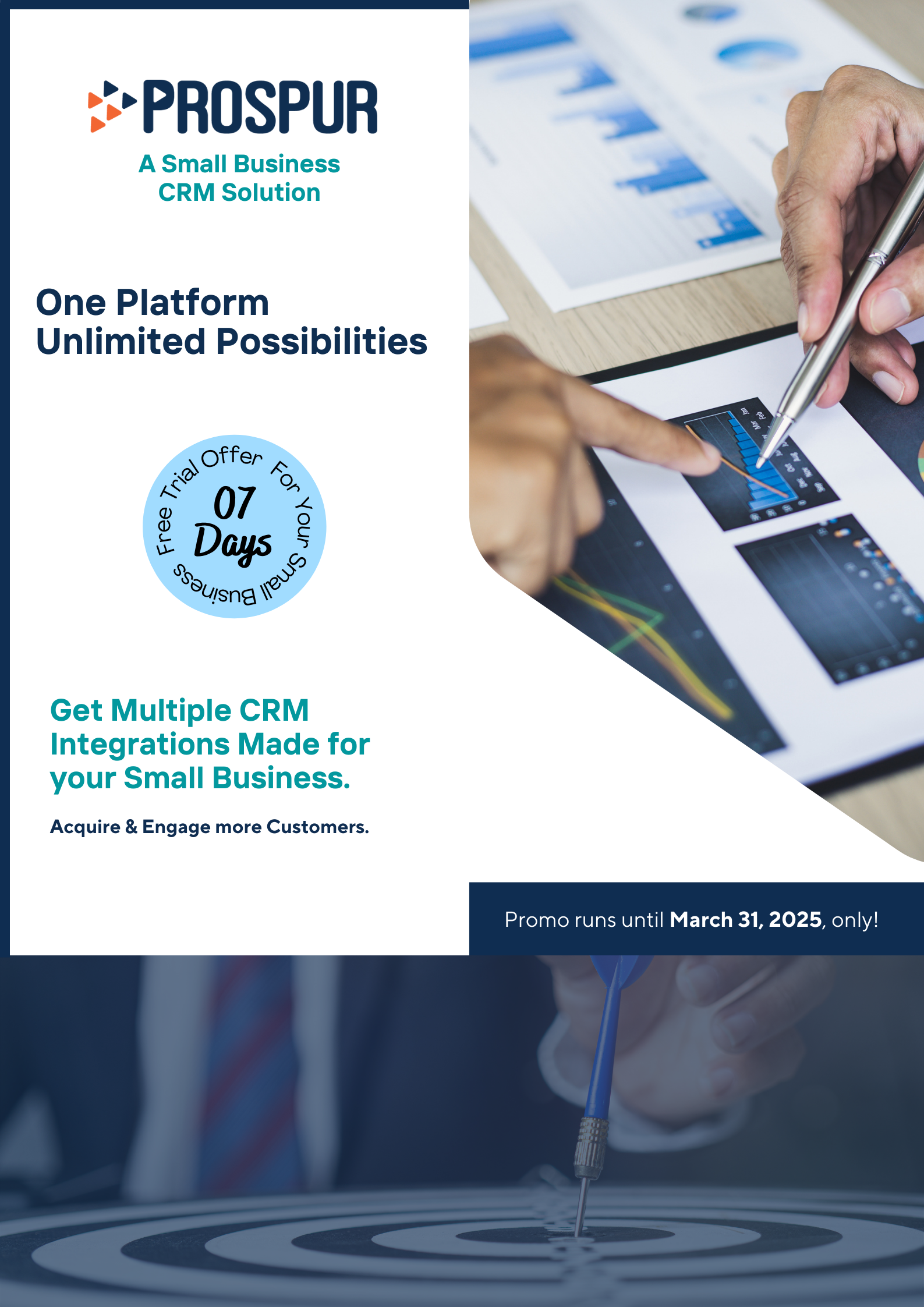What’s the Difference Between Operational and Analytical CRM?
Editorial StaffJanuary 25, 2024

CRM has become an omnipresent element of business today. From large conglomerates to home chefs, every business needs the power of CRM to share the right data with the right person at the right time.
Each business has unique requirements in line with its growth strategies. Hence, having the right tools becomes vital. CRMs are broadly classified into two types based on the functions they perform.
While operational CRM deals with the day-to-day business processes, analytical CRM processes data to provide actionable insights. Choosing the right CRM system is crucial for timely and effective decision-making that boost growth.
Let’s delve into the features of each type and their key differences.
Operational CRM vs. Analytical CRM
The CRM software market is the biggest globally and is poised to reach USD 145.79 billion by 2029. A vast market provides ample opportunities for your business to choose the CRM best suited for your business needs. CRMs are classified into two types: operational CRM and analytical CRM.
Operational CRM:
An operational CRM is the most basic type of CRM. It helps generate leads, convert them into customers and provide services to retain them. It maintains the records of all prospective and existing customer interactions.
Thus, an operational CRM primarily deals with the customer service, marketing, and sales functions of a business. Service automation, sales automation, and marketing automation are the three primary features of this CRM that help streamline the operations of your business.
Operational CRM captures customer data and applies it to provide service across the entire customer lifecycle. It best suits your business if you wish to optimize your workflow by automating repetitive tasks for a linear sales process.
#1. Marketing Automation:
Identifying and generating leads is a time-consuming activity. The marketing automation function measures sales conversions and streamlines the business’s marketing activity.
Marketing automation can speed up marketing activities across a range of factors. Lead-generation marketing tools can automate tasks related to targeted campaigns.
Similarly, tools for retention marketing can help monitor customer payment patterns and engage existing customers to promote brand loyalty.
Email automation, marketing funnels, and campaign tracking are some functions performed through marketing automation.
#2. Sales Automation:
Sales processes involve a lot of back and forth with the sales team. Automating sales processes allows you to cut time on repetitive tasks and use dynamic management tools for task assignment, sales tracking, orders and invoices, and reporting.
Sales automation is essential because it helps visualize the current workflow and understand if it aligns with your future sales goals.
#3. Service Automation:
Service automation involves contact management and data management of information collated from all customer emails, phone calls, website activities, and orders for a holistic view of all customers of your business.
It records all interactions and communications while setting standards for task delegation for customer service. It also helps determine the overall satisfaction of your customers.
Service automation ensures that your business meets customer needs with a service that is accurate and prompt.
Analytical CRM:
The primary function of analytical CRM is data analysis. This data includes contact information, sales and revenue, marketing campaigns, customer retention rate, payment methods, and any other information that aligns with furthering your business.
Analytical CRM is the synergy of business intelligence with business information. Its main features include:
#1. Data Mining:
CRM provides a single central database of all customer interactions like engagement touch points, sales, and preferences. Analytics helps find insights into customer behavior by looking for data within the information already present and creating correlations, clusters, and segments for a clear view of your customers and their needs.
#2. Sales Forecasting:
Analytical CRM processes past sales data and provides sales forecasts from which your business can benefit. This helps your business to set goals and prepare for future trends.
#3. Tracking Marketing Efforts:
All marketing efforts are not successful. Analytical CRM can quantify and track the success rate of marketing campaigns and give valuable insight into what works and doesn’t work to get more customers. It also helps in attributing various touch points that successfully convert leads to customers.
#4. Create Buyer Personas:
By analyzing customer behavior, purchase patterns, payment methods, and demographic data, analytical CRM can help create buyer personas for your business. This helps to understand your target audience better and improve customer experience. It also facilitates cross-selling and up-selling to existing customers and improves brand loyalty.
Which Type Is Better For My Business?
While discussing operational CRM vs. analytical CRM, we must understand that each business has unique needs and that no one type of CRM can suit all businesses.
However, various pointers can help you determine which is better suited for your organization.
Operational CRM is best suited for your business if you are using a CRM system for the first time. An operational CRM fits the bill if you struggle with keeping your customer and sales records organized.
Moreover, if you spend too much time recording, assigning, and performing repetitive tasks, then automation of operational CRM can save both time and cost of carrying out routine tasks.
Analytical CRM comes into the picture when your business has already benefited from centralized data management and requires deeper intelligence to scale your business.
If your business needs in-depth information about your customers, where they come from, what they like and how they engage with your organization, then analytical CRM can provide a holistic view of various workflows.
It can help your business create strategies for growth based on sales and revenue forecasts, data clusters, and buyer personas.
Benefits of Choosing the Right CRM:
A recent survey shows that 56% of businesses consider CRM the most valuable software. The reason is apparent. CRM provides a comprehensive view of your business activities and customer interactions.
The ultimate goal of CRM is to know what your customers want, streamlining business processes to cater to them and, thus, improve profitability. Choosing the right CRM platform can help your business in many ways:
#1. A comprehensive view of customers
A well-integrated CRM can gather customer data from various processes and provide a holistic view of all your customers. Automation can ensure no leads are left out and no customers are forgotten. Data analytics provides valuable information about customer choices. A smart CRM can aggregate all the data in one place.
#2. Timely decision-making
Automation and analytics are the strengths of a well-designed CRM. They save time and provide deeper insights into your business processes and customer behavior. It directly influences your decision-making ability. Armed with valuable data, you can make the right decisions about your products and services at the right time.
#3. Streamlined workflows
Automation and tracking features of a CRM help in various functions such as task management, sales reporting, and customer servicing. Integrating multiple functions through an intelligent CRM streamlines all workflows and simplifies tasks.
#4. Clear communication
One central database for all business processes ensures clear communication across functions. CRMs with integrated communication software and mobile accessibility make it easier for all teams to communicate with each other.
Final Words:
Reap the benefits of both operational and analytical CRM with Prospur — a secure, scalable, and simple all-in-one platform for your business.
With progressive integration, smart automation, and intuitive analytics, Prospur helps you focus on understanding customer needs and giving them your best. Contact us for a FREE Demo.

